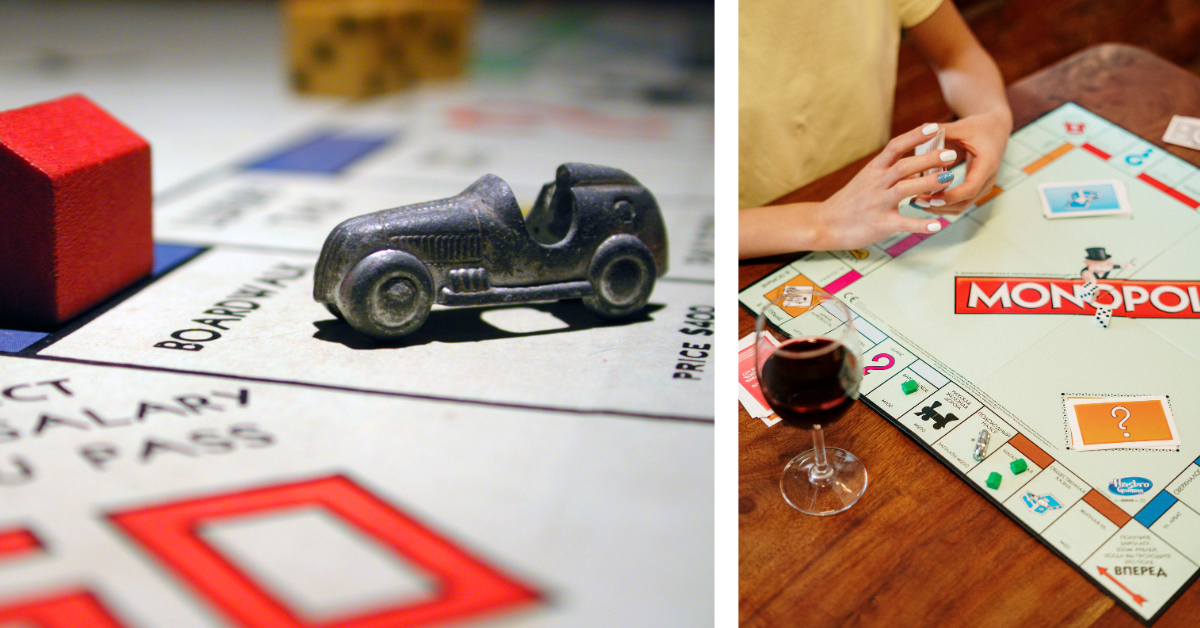Monopoly is widely recognized today as a game about capitalist domination and financial power, but its origin tells a different, more complex story of social justice, economic critique, and, eventually, misattribution. The journey of how Monopoly became one of the world’s most iconic board games intertwines with the story of a woman’s vision for fairness and equality in a rapidly changing world.
Origins of the Landlord’s Game: A Passion for Economic Justice
In the late 1800s, Elizabeth Magie, a bold thinker and feminist, was deeply influenced by the economic philosophy of Henry George. She learned about Georgism from her father, which shaped her worldview on inequality and wealth distribution. George’s teachings advocated for the public ownership of land and the abolition of land monopolies through a single tax system. Magie, passionate about spreading these ideas, devised a creative solution to demonstrate the damaging effects of wealth hoarding: she designed a board game.
In 1903, Magie created “The Landlord’s Game,” an educational tool meant to illustrate the flaws in land-grabbing and the monopolization of wealth. She patented the game in 1904, explaining that it would demonstrate the consequences of unfettered capitalism, which was her critique of the growing disparity in wealth distribution.
The Spread of The Landlord’s Game
Magie’s game didn’t gain much commercial traction on its own, but it began spreading in an unorthodox way: by word of mouth and homemade versions. Copies were passed among college students and progressive communities, particularly on the East Coast of the U.S. The game found success among left-leaning intellectuals and social reformers, though many didn’t know who its creator was. As homemade versions of The Landlord’s Game circulated, players adapted and modified the rules, and it evolved into several forms.
Charles Darrow and Monopoly’s Commercial Success
Fast forward to the 1930s, the Great Depression had hit America hard. A man named Charles Darrow came across a version of the game at a friend’s house. Unemployed and desperate, Darrow saw an opportunity. With the help of his friend, he recreated the game and tweaked its design, adding some well-known elements like Rich Uncle Pennybags (the Monopoly mascot) and properties inspired by Atlantic City. Darrow marketed the game to Parker Brothers in 1935, selling it as his invention.
The game became an instant commercial success. By 1936, over 1.75 million units had been sold, and Darrow became the first millionaire board game creator. However, the tale of Monopoly’s creation was far from complete. Darrow, for years, claimed sole credit for the invention of the game, concealing Magie’s pivotal role.
Parker Brothers’ Deal with Magie
As Monopoly’s popularity soared, Parker Brothers discovered Magie’s 1924 patent for a version of The Landlord’s Game. Concerned about potential legal complications, the company approached Magie in 1935, offering her $500 for the rights to her patent. She accepted, excited by the idea of her game reaching a larger audience. However, Magie soon realized her work had been co-opted and sold under Darrow’s name. Her contributions were overshadowed, and she never received the recognition—or financial reward—that Darrow enjoyed. In 1936, Magie fought back through the press, sharing her side of the story, but the public paid little attention.
The Rediscovery of Magie’s Legacy
Magie’s story might have remained buried if not for the efforts of Ralph Anspach, an economics professor who, in the 1970s, developed a game called “Anti-Monopoly” to critique corporate monopolies. When Parker Brothers sued Anspach for trademark infringement, he dug into Monopoly’s history to build his defense. Through his research, he unearthed the true origins of the game and Magie’s role as the original inventor. Anspach won his case, and Magie’s contributions to Monopoly were finally recognized.
The Complicated Legacy of Monopoly
Despite Ralph Anspach’s revelations, Monopoly’s official history, as told by Hasbro (which acquired Parker Brothers), continues to credit Charles Darrow as its creator. The game’s commercial success is undeniable—it has sold millions of copies worldwide and remains a staple of family game nights—but its true origins are far more nuanced. Monopoly started as a tool for educating people about economic injustice, yet it evolved into a celebration of capitalist competition and monopoly-building.
Conclusion: Who Owns History?
The story of Monopoly is not just a tale of a popular board game but a reminder of how easily contributions can be erased or misattributed. Magie’s goal was to expose the dangers of monopolistic practices, yet the game bearing her legacy became synonymous with wealth accumulation and corporate domination. Her story also raises critical questions about how we credit innovation and recognize the intellectual contributions of women and marginalized individuals. Monopoly’s enduring popularity proves that games aren’t just relics of their makers—they evolve with each player and generation, continually adding to their complex histories.
Elizabeth Magie’s journey is one of brilliance overshadowed, but her influence on one of the world’s most beloved board games remains undeniable.



